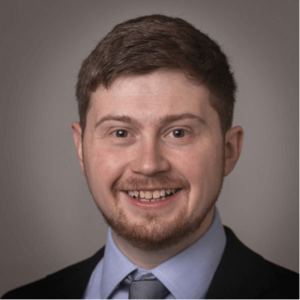
Alexander Dowling
University of Notre Dame
4:30 PM
127 Hayes-Healy
(Colloquium Tea held at 4:00 pm in 101A Crowley Hall)
Building Science-based Mathematical Models from Data
Predictive multiscale mathematical models are a cornerstone of science and engineering. But model selection, training, and validation in practice are often more of an art than a science, despite the recent advances (and hype?) in data science and machine learning. In this three-part talk, we explore systematic, principled approaches to building science-based mathematical models using several examples from chemical engineering.
Science-based (model-based) design of experiments (SBDOE) seeks to maximize the information gained in proposed experiments conditioned on an assumed model by manipulating experimental degrees of freedom. In Part 1, we introduce Pyomo.DOE, the first open-source package for science-based (model-based) design of experiments. We highlight important model formulations to improve the numeric robustness of SBDOE optimization. In a case study, we apply SBDOE to optimize fixed-bed breakthrough experiments to calibrate to a partial differential-algebraic equation (PDAE) model for CO2 adsorption on next-generation metal-organic framework (MOF) materials. In Part 2, we share how synergies between data analytics (e.g., dynamic modeling, nonlinear parameter) and transport experiments (e.g., sensor design for time-series measurements) led to the new Diafiltration Apparatus for high-Throughput Analysis (DATA) technique for membrane characterization. We show how Fisher Information-based metrics quantify the information gain for additional measurements and help optimization experimentation conditions. Finally, in Part 3, we explore opportunities to leverage surrogate-assisted optimization to calibrate science-based parameters in molecular simulations, multicellular tissue shape models, and other computationally demanding calculations.
View Poster